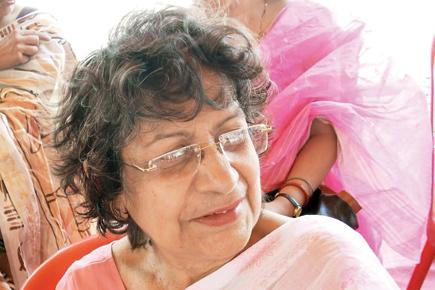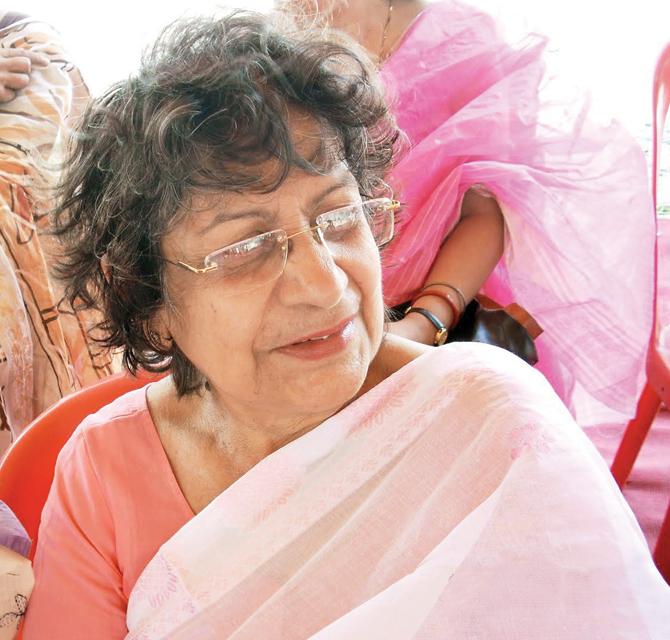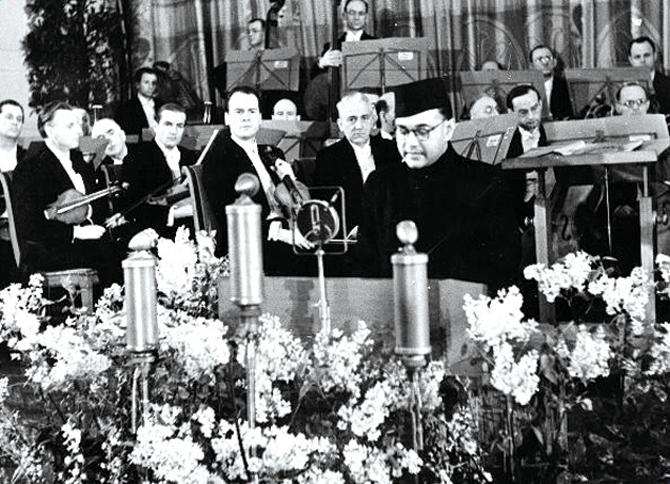While Mamata Banerjee clamours for declassifying all Bose files, researcher Dr Purabi Roy says it’s a waste of time

Dr Purabi Roy
Last week, West Bengal Chief Minister Mamata Banerjee asked the Central government to declassify all files related to Netaji Subhash Chandra Bose following a meeting with Union Home minister Rajnath Singh. She on her part released 64 secret files on September 18.
ADVERTISEMENT
Also read: West Bengal makes public cabinet papers from 1938 to 1947

Dr Purabi Roy
But, Dr Purabi Roy, veteran researcher and formerly with the Department of International Relations, Jadavpur University, says little will come of out this clamour. Roy, who pursued the mystery of Bose’s death for two decades, was one of the few Indians to see a noting on Bose in KGB files in Moscow. She finds it puzzling that one inquiry committee and two commissions — appointed at different times by three governments — seemed unsure about how the nationalist actually died.
Select excerpts from the interview.
Q. Some Bose files have been declassified. Isn’t that encouraging?
A. No, the files will show nothing barring some incidents of snooping. I wonder if such files even exist with the Indian government. I have a feeling everything has been destroyed, mainly by the Congress. We are chasing a mirage.
Q. When did you first see the files and where?
A. I was in Moscow between 1995 and 1996 as part of an Indian delegation from the Asiatic Society. I met with Kolesnikob Alexander, former major general of the Warsaw Pact, who I had a feeling was part of the KGB too. He said files of the Russian intelligence existed at the archive library in Paddolsk. I pleaded with Alexander to open them. He said he wasn’t allowed to take notes. I told him to remember three things: Bose, date and year. There were two burly Russian soldiers at the gate. Expectedly, I wasn’t allowed in. Alexander confirmed that Bose was in Soviet Gulag (a system of forced labour camps that housed petty criminals to political prisoners) around 1945-49. He also confirmed Stalin was the person who kept him there, away from the prying eyes of the British and US intelligence forces.

Subhash Chandra Bose during a speech to urge for India’s independence in Berlin in 1897. pic/Getty Images
Q. What was your reaction?
A. I thought I was going to collapse on the stairs of that imposing library, realising a big fraud had been perpetuated on our nation. I felt helpless. I knew the Indian government would not help me access the files.
Q. Did you make an effort to see the files yourself?
A. At one state-sponsored function, I had the chance to meet with the all-powerful Leonid Ilyich Brezhnev, General Secretary of the Central Committee of the Communist Party of the Soviet Union (CPSU). He gave me a patient hearing and said he would be more than willing to open up the KGB files to trace Bose. In fact, he said, Khrushchev, during his visit to New Delhi, had told Nehru that Bose could be produced if Nehru wished. But that never happened. Still, Brezhnev asked me to approach the government in India and seek an official letter.
Q. Did you do that?
A. I knew it was impossible, but I asked Alexander to help me. I managed to find out, thanks to him, that Bose had reached Russia from Taipei even before the World War II wound up. I managed to sneak out a photograph of Bose in Russia from the Russian State Archive of Film and Photographic Document, or RGAKFD. The photograph showed him in a room, which had room heaters like the ones used by Soviet armed forces for prisoners in Siberia. If I had it scanned, it would have proved that the photograph was taken in Siberia. I was getting increasingly convinced of Bose’s presence, and subsequent death in Russia.
Q. Back home, did you take it up with the government?
A. Yes, and the opposition too. No political party showed any sincerity in finding out the truth. That was the post-Perestroika period, when files were thrown open. The Indian government could have easily accessed them. I would say the Action Taken Memorandum (ATM) of the Indian government should be condemned for its lack of transparency. With all evidence available, the government did not agree with the findings of the Mukherjee Commission that Subhas Bose did not die in a plane crash and the ashes in the Renkoji Temple were not of Netaji. Eventually, I gave up.
Q. Is there something about the Mukherjee Commission that India does not know?
A. Justice (Retd) Mukherjee once called me to say he had received a parcel from the Indian embassy in Moscow. Strangely, it had not been seen by officers of the Indian Intelligence Bureau. He opened it in my presence. It had documents that were scanned copies of those available in Russia and hinted very, very strongly that Bose was in the Soviet Union during the post-1945 era. Shockingly, the original documents had mysteriously vanished from the Russian archives before the Mukherjee Commission went there for its probe.
 Subscribe today by clicking the link and stay updated with the latest news!" Click here!
Subscribe today by clicking the link and stay updated with the latest news!" Click here!








